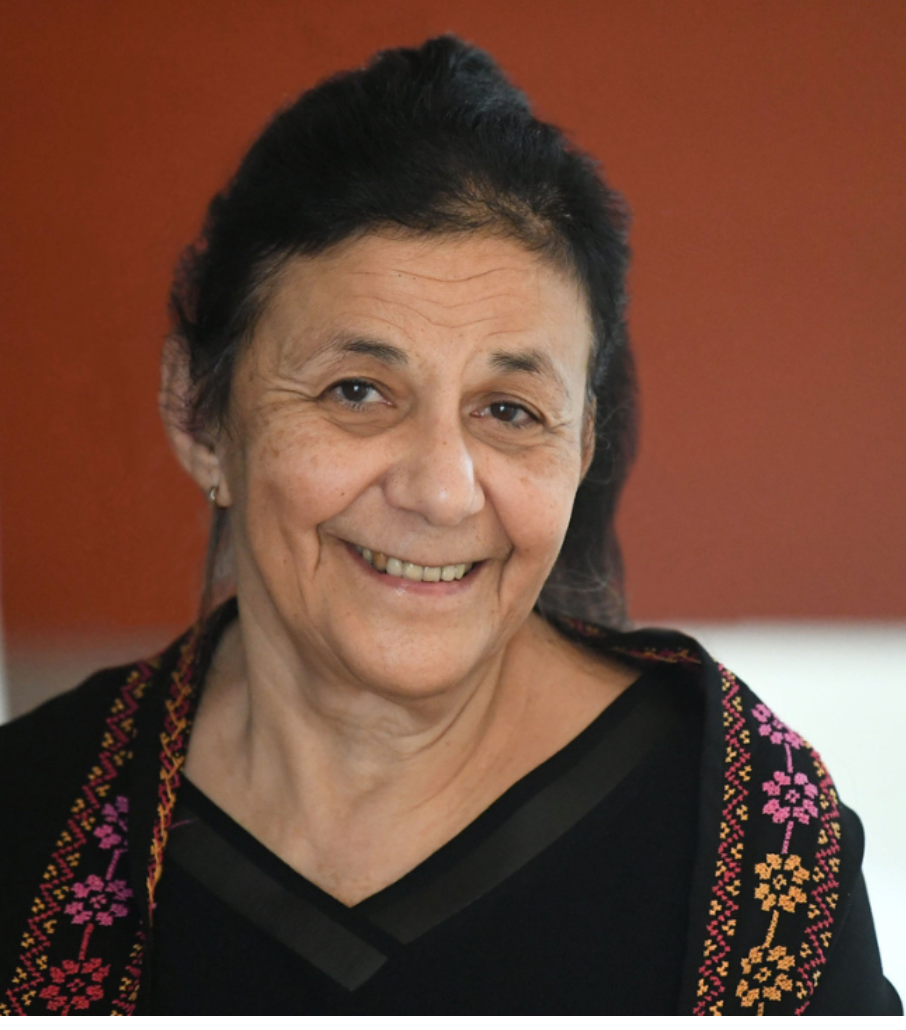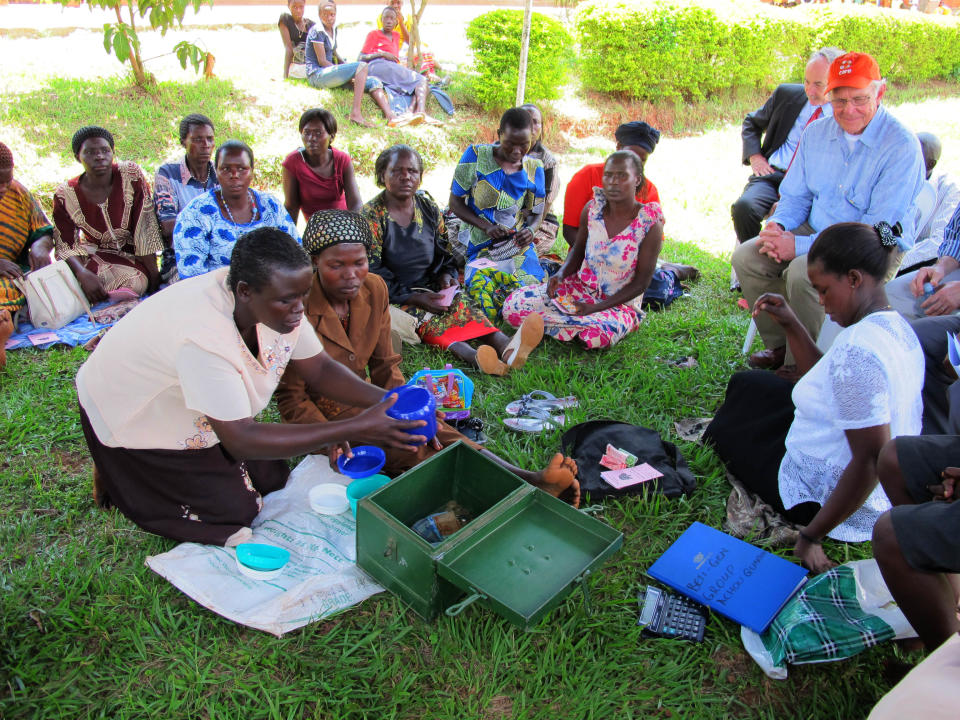Long a bipartisan effort, a program to fight global HIV is stuck in Washington gridlock
Dr. Wafaa El-Sadr was visiting a rural village in Tanzania about a decade ago when a farmer thanked her for saving his family.
The farmer had received medication for HIV/AIDS, which has devastated impoverished areas in Africa and other countries.
Far from the Manhattan office where she directs a Columbia University program founded to address the AIDS epidemic, El-Sadr heard how the farmer's family and his fellow villagers had survived and could live normally.
El-Sadr’s visit to one of Columbia's ICAP sites came as part of the President’s Emergency Plan for AIDS Relief, or PEPFAR, a federally funded program that provides prevention, treatment and education for people around the world. At the time of her visit, PEPFAR had been around for about 10 years. It was launched by former Republican President George W. Bush in 2003, the same year El-Sadr founded ICAP, which has gone on to fight other public health crises, including the COVID-19 pandemic.
Public health: This bacteria can kill young people. There's a new way to prevent it.

Two decades later – and with continuous bipartisan support – PEPFAR has been credited with saving 25 million lives, although HIV and AIDS are far from being eliminated. In 2022, the world saw more than 1.3 million new HIV cases and 630,000 AIDS deaths. About 39 million people are estimated to be living with HIV today.
“The work is not done,” El-Sadr told USA TODAY. “That applies to the United States and applies to the countries that PEPFAR is supporting.”
One major element has changed for this global health program: its steady, bipartisan support. A subset of House Republicans has begun promoting a theory that PEPFAR supports access to abortion.
Experts and federal officials refute this, saying abortion services are not provided under the program. In the meantime, PEPFAR, a model of a forward-thinking U.S. approach to global public health and foreign diplomacy, lingers in the balance. Some fear that a failed reauthorization will send a message that the U.S. is willfully stepping away from its international role as a leader in prevention, curtailing its efforts even if it means allowing HIV to spread globally.
'Backing down from our leadership'
The PEPFAR model played a significant role in reducing the spread of COVID-19 and mpox. In many cases, countries used their PEPFAR programs to offer COVID-19 testing. While PEPFAR is expected to continue functioning for the time being, the program's ability to address public health threats in the next decade remains in jeopardy as Congress continues to stall on long-term funding for this juggernaut of global public health prevention.
Leaders have been speaking out in recent months in hopes they can preserve the outreach programs that are already in place.
“If the United States Congress does not reauthorize PEPFAR, it will send a message to partners around the world, especially in Africa, that we are backing down from our leadership in ending HIV/AIDS as a public health threat by 2030,” Dr. John Nkengasong, the U.S. ambassador who serves as the global AIDS coordinator and senior bureau official for global health security and diplomacy in the State Department, said in a statement to USA TODAY. “Failure to reauthorize PEPFAR would have immediate consequences for our relationships with African countries, hamper long-term program planning, and compromise investments in innovation that have the potential to benefit millions of Americans.”
Infant mortality: More babies are dying in the US: Details on the troubling trend
Historically, $110 billion has been committed by countries around the world toward funding PEPFAR, and the U.S. is the largest contributor, according to the KFF, a health research nonprofit. More than 50 countries have received public health services through PEPFAR.
Funding has covered increased testing and prevention, including HIV preventative medicine known as PrEP, treatment with antiretroviral drugs for adults and children and tuberculosis therapies, and has strengthened health systems by providing labs, workers and surveillance. Partner countries have given PEPFAR credit for uplifting their economies, keeping children in school and reducing the stigma around HIV.
“PEPFAR turned the tide on the HIV epidemic over the past 20 years,” Kellie Moss, associate director of Global Health and HIV Policy at KFF. “It's saved millions of lives, prevented children from being orphaned, prevented HIV infection from being passed from mother to child.”
Biden 'hijacked' PEPFAR, GOP congressman says
Congress has reauthorized the program several times during the Bush, Obama and Trump administrations. President Joe Biden requested $6.8 billion this fiscal year, continuing an upward increase of spending on PEPFAR since the program began. Congressional Republicans have stalled on reauthorization over concerns about whether the program funds abortion, and the provisions expired Sept. 30.
KFF's policy expert said the GOP sticking points were not based on what's happening on the ground in PEPFAR programs. U.S. law prohibits the use of foreign assistance, which includes PEPFAR, for abortion, Moss said. She said there is no evidence abortions are being provided through the program.
The idea that Biden is using PEPFAR to promote abortion has been a talking point for U.S. Rep. Chris Smith, R-N.J., chair of the global health subcommittee, who co-sponsored the 2018 PEPFAR extension.
During an appropriations debate on the House floor in late September, Smith said Biden had repealed a Reagan-era policy that restricted funds to promote abortion, and Biden’s strategic plan involved reimagining a broader PEPFAR initiative that would include sexual and reproductive health and rights, including abortion, along with HIV/AIDS work.
“Regrettably, it has been reimagined – hijacked – by the Biden administration to empower pro-abortion international nongovernmental organizations, deviating from its life-affirming work,” Smith said.
When asked for details that prompted Smith's concern, Michael Finan, spokesperson for Smith, shared a June 6 letter from the lawmaker citing organizations the congressman said had supported abortion access and had also received PEPFAR money. The letter from Smith did not provide evidence these groups had used PEPFAR money to promote abortion.

Risks on global fight
Many Republicans disagree with Smith about PEPFAR funding, including some of the old guard. An open letter to Congress from the Bush Center – supported by more than 30 organizations and former public health officials and diplomats – said PEPFAR is one of the most successful international development programs since World War II.
The institute and library founded by the 43rd president called for "a clean reauthorization," just as lawmakers have managed to do three times before.
“Abandoning it abruptly now would send a bleak message, suggesting we are no longer able to set aside our politics for the betterment of democracies and the world,” the Oct. 25 letter said.
El-Sadr, the Columbia doctor, said she hasn’t been contacted by House Republicans about PEPFAR or ICAP’s work implementing it. She called GOP lawmakers' statements about PEPFAR and abortion “simply not true." She noted that failing to reauthorize PEPFAR has already caused anxiety for people who benefit from the American program.
On Thursday, she and Dr. Myron Cohen, the head of the University of North Carolina’s Institute for Global Health and Infectious Diseases, published an editorial in the journal “Science” warning about the dangers of not reauthorizing PEPFAR.
El-Sadr and Cohen put it simply, citing their many years helping with public health programs abroad: “The lives of millions hang in the balance.”
Eduardo Cuevas covers health and breaking news for USA TODAY. He can be reached at EMCuevas1@usatoday.com.
This article originally appeared on USA TODAY: PEPFAR program, vital to global fight against HIV stalls in Congress

